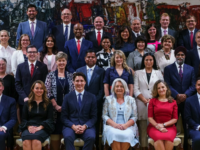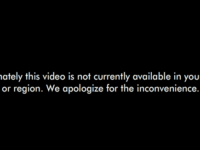It should not come as a surprise, but those hoping that the government’s much-anticipated cabinet overhaul might signal a potential course-correction on its digital policy mess will be sorely disappointed. If anything, yesterday’s changes at Canadian Heritage and Justice suggest an acceleration of plans that will include continuing to head toward the Bill C-18 cliff of blocked news links as well as introducing controversial online harms legislation and perhaps even copyright reform. Pascale St-Onge, the new Heritage Minister, was a lobbyist in the culture sector before her election to the House of Commons and is likely to welcome the big tech battle, while removing David Lametti as Justice Minister and replacing him with Arif Virani means online harms loses an important voice for freedom of expression in favour of someone who has expressed impatience with delays in new regulations.
Search Results for "c-11" : 409
The Law Bytes Podcast, Episode 171: What Just Happened? – A Half-Year Report on Canadian Digital Policy
With Parliament set to break this week for the summer, this week’s Law Bytes podcast provides a half-year report on what happened over the past six months. At the start of the year, I focused on five issues in 2023 preview: the role of Canadian Heritage, the increasing tensions over digital policy, the emergence of private members bills, wireless policy disputes, as well as privacy and AI regulation. The episode revisits these issues with an examination of how Bills C-11 and C-18 were pushed through the legislative process, the battles over wireless regulation in light of the Rogers-Shaw merger, and the failure to advance privacy and AI regulation.
Episode 171: What Just Happened?: A Half-Year Report on Canadian Digital Policy
With Parliament set to break this week for the summer, this week’s Law Bytes podcast provides a half-year report on what happened over the past six months. At the start of the year, I focused on five issues in 2023 preview: the role of Canadian Heritage, the increasing tensions over […]
The Law Bytes Podcast, Episode 170: The Bill C-18 End Game – What the Senate Heard About the Online News Act
Bill C-18, the Online News Act, heads to clause-by-clause review this week at the Senate Transport and Communications Committee. The committee’s study of the bill wasn’t as extensive as Bill C-11, but it did hear from a very wide range of stakeholders and experts. Last month, I devoted the Law Bytes podcast to my appearance before the committee, including my opening statement and exchanges with various senators. This week’s Law Bytes podcast takes listeners into the committee room for clips from media big and small, independent experts, Google and Meta, and Canadian Heritage Minister Pablo Rodriguez.










